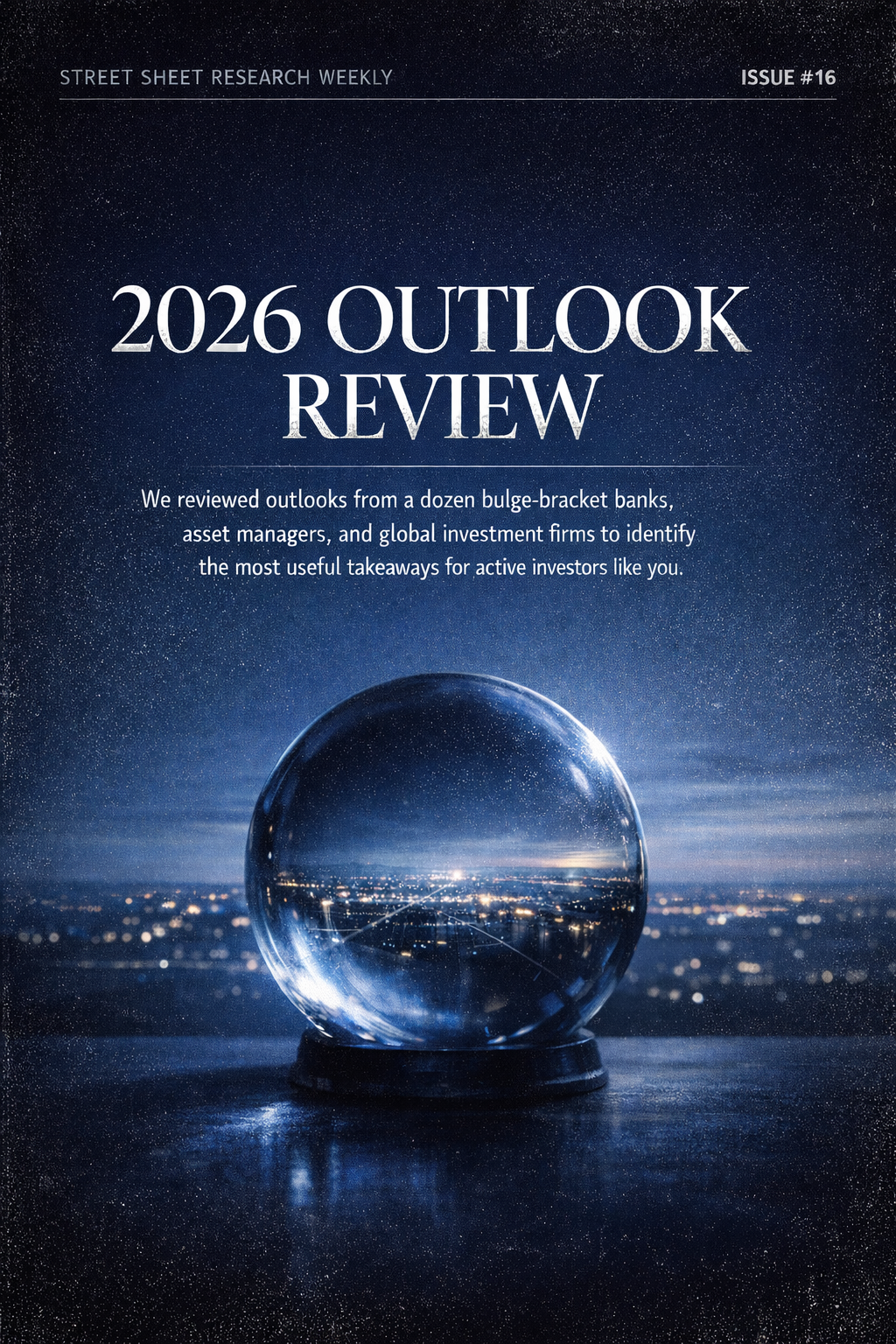
Happy Saturday, and welcome back to our super skimmable Street Tweets newsletter.
AT&T was hit with some seriously bad news on Friday.
In case you didn’t hear, the company experienced a massive hack that exposed nearly all of its mobile phone customers’ personal data from 2022, making it one of the largest private communications data breaches in recent history.
The stolen data includes records of calls and texts, and the hacking group has successfully downloaded all of it to a third-party cloud service.
This isn’t the first time AT&T has made reputation-damaging headlines this year. In February, a massive outage made AT&T’s network inoperable for nearly 12 hours. And last month, many AT&T customers were unable to make calls between competing carriers.
Shares of AT&T are up 14% over the last 6 months, but some analysts believe the company’s recent spate of issues will seriously harm its brand loyalty and customer retention.
Plus, this AI company could surpass Amazon's success with market caps nine times larger. Check out the exclusive report from today’s sponsor.
MARKET REVIEW
TL;DR: This week in US markets, the three major indexes hit record highs as inflation data improved and Fed Chair Powell reassured the public with cautious optimism.
Powell highlighted ongoing economic strength despite cooling inflation. June's CPI showed a rare monthly decline, impacting bond yields and increasing rate-cut expectations. Unemployment claims fell, consumer sentiment remained stable, and small business optimism rose slightly.
Big banks saw mixed results despite positive earnings reports, while tech giants like Apple and TSMC reported strong growth. Boeing settled a major fraud case, and Tesla's stock dipped on Robotaxi delays while Lucid gained on partnership news. Significant mergers included Paramount and Skydance and AMD's acquisition of Silo AI.
MARKET PREVIEW
TL;DR: For the third week in July, all eyes are on the second-quarter earnings season.
Reports from BlackRock, Goldman Sachs, Bank of America, Morgan Stanley, and others will gauge economic health across sectors. UnitedHealth's performance may impact the Dow, while Netflix's report will reveal its strategy amid streaming challenges and sports ventures. TSMC's earnings will signal trends in the semiconductor industry amid AI advancements. Additionally, Fed Chair Powell's remarks on Monday will respond to recent CPI data, setting the stage for upcoming policy decisions.
What happened to a once-great empire?
While not a comprehensive explanation for the UK’s decline, much of the nation’s struggles come from a drought of innovation.
Germany has its automotive industry, Switzerland has biotech, and Denmark is innovating the pharmaceutical industry, but what of the UK?
As it turns out, the UK’s greatest GDP contributor is its financial services sector. Plus, roughly half of the sector’s output is generated in, you guessed it, London.
So, the UK’s primary economic driver is financial services, a sector that doesn’t actually produce assets, and its profits largely remain isolated to the nation’s capital.
In other words, we’re seeing the inevitable result of an economic recipe for vast wealth disparity and stagnation.
The tweet from Abramowicz is almost right — it just overlooks the brief period prior to the pandemic in which the United States was energy independent.
However, the point remains. US energy production is now outpacing consumption, and that’s a good thing. For one, energy independence helps insulate the U.S. from the deleterious economic impacts of global conflicts, which are on the rise.
US energy production outpaced consumption by nine quadrillion British thermal units in 2023, the widest margin since 1949.
Why? Well, let’s take a look at the primary energy sources:
Natural gas: 43.1%
Coal: 16.2%
Nuclear: 18.6%
Renewables: 21.4%
Notable from this list is the fact that nuclear and renewables now make up roughly 40% of US energy production.
This shouldn’t shock anyone who has been watching the success of companies like First Solar and NextEra Energy, whose stocks have gained approximately 35% and 23% in the last 12 months, respectively.
TOGETHER WITH THE MOTLEY FOOL
Amazon, once a small online bookstore, grew into a global behemoth, transforming industries along the way. Now, imagine yourself at the forefront of the next revolution: AI. In The Motley Fool's latest report, uncover the parallels between Amazon's early trajectory and the current AI revolution. Experts predict this AI company could surpass Amazon's success with market caps nine times larger. Yep, you read that right. Don't let history repeat itself without you. Sign up for Motley Fool Stock Advisor to access the exclusive report.
Putting ethical concerns aside…
… this could be revolutionary for America’s largest banks and insurers.
If roughly half of the jobs in those industries are replaced by AI, it would inherently lead to improved cost efficiency and profit margins.
Who stands to benefit? The current industry leaders. This is because they have sufficient capital to invest and experiment with this new technology right now and be the first in line to adopt it at scale.
We’ve already seen Morgan Stanley unveil its AI assistant, Debrief, which has the capacity to shoulder thousands of hours of labor normally assigned to financial advisors.
It’s not like Debrief is only good for analyzing spreadsheets. The program, built using GPT4, can sit in on Zoom meetings with clients, summarize discussions, and draft emails.
Will Morgan Stanley's stock see a substantial boost from AI implementation in the coming years?
Time for a history lesson.
Radio Corporation of America was essentially the Nvidia of the 1920s. It was a leader in the radio industry, benefited from exclusive patents, and enjoyed a near-monopoly on radio tech and broadcasting.
RCA’s stock soared under these conditions, and so did the popularity of radio sets. However, by 1932, its stock had declined 98%, and the company’s wild success, not the Great Depression, was much of the cause.
Radio sets had entered nearly every American home, slowing new sales. Plus, RCA’s patents expired, causing competitors to flood the market.
Looking back, RCA could have survived by diversifying its business, moving into television and other electronics.
But for Nvidia, where is the new frontier beyond AI? At some point, competitors will market sufficiently powerful hardware to fuel AI tech…
TOGETHER WITH THE MOTLEY FOOL
Amazon, once a small online bookstore, grew into a global behemoth, transforming industries along the way. Now, imagine yourself at the forefront of the next revolution: AI. In The Motley Fool's latest report, uncover the parallels between Amazon's early trajectory and the current AI revolution. Experts predict this AI company could surpass Amazon's success with market caps nine times larger. Yep, you read that right. Don't let history repeat itself without you. Sign up for Motley Fool Stock Advisor to access the exclusive report.
That’s communism, and many NFP members would proudly agree.
France’s left-wing coalition, the New Popular Front (NFP), won the most seats in the nation’s parliamentary elections last Sunday.
The NFP is made up of the Socialists, the Greens, the Communists, and the France Insoumise (France Unbowed).
Their publically stated agenda is to increase public sector pay, freeze the price of energy and essential goods, and increase investments in green energy — in other words, enact a state-run economy with bureaucratic price fixing akin to the Soviet Union.
The NFP’s success positions Jean-Luc Mélenchon, the leader of France Unbowed, for a reasonable claim to becoming the next prime minister. Mélenchon has stated that his party’s agenda must be fully implemented and “cannot be sliced into pieces.”
What are the chances of France implementing a 90% income tax on those making over €400,000? Thankfully, low.
French economists and legal scholars believe many of the measures put forward by the NFP are either unconstitutional or against EU rules, violating measures like the EU’s Stability and Growth Pact.
However, the nation is known to have a revolutionary bent to it…
TRIVIA
Last week, we asked: which economist is credited with developing the theory of Comparative Advantage, which forms the basis for international trade theory?
The correct answer was David Ricardo.
This week’s question…






